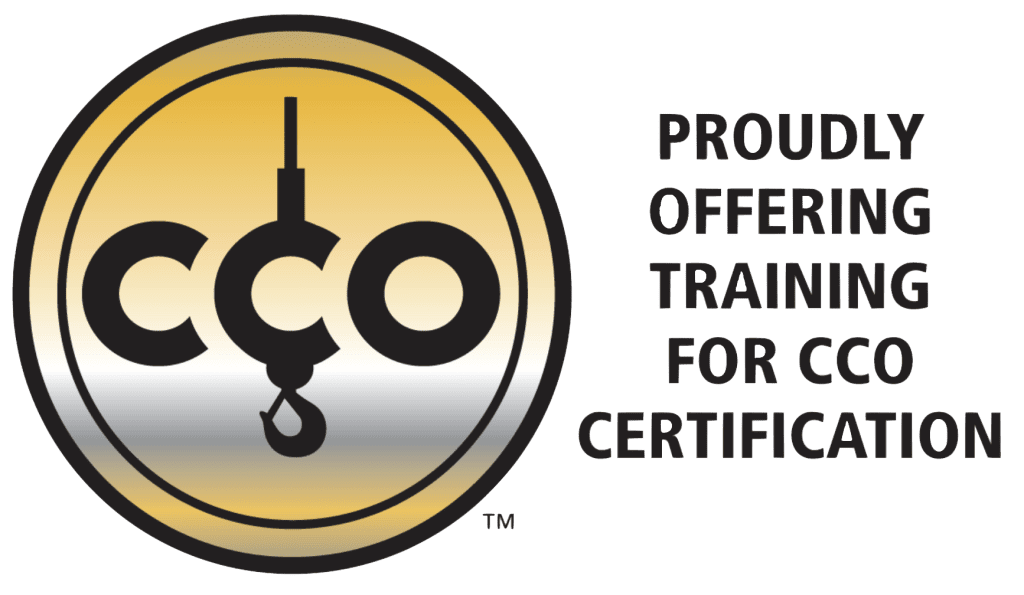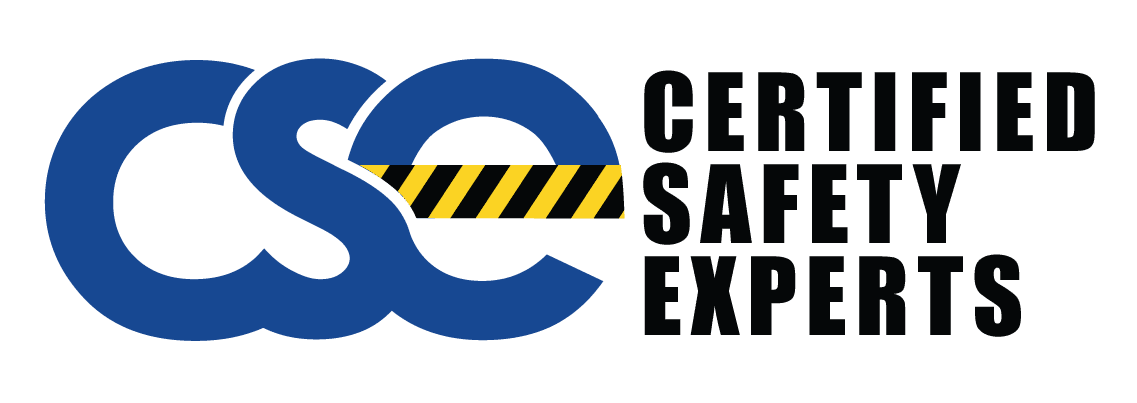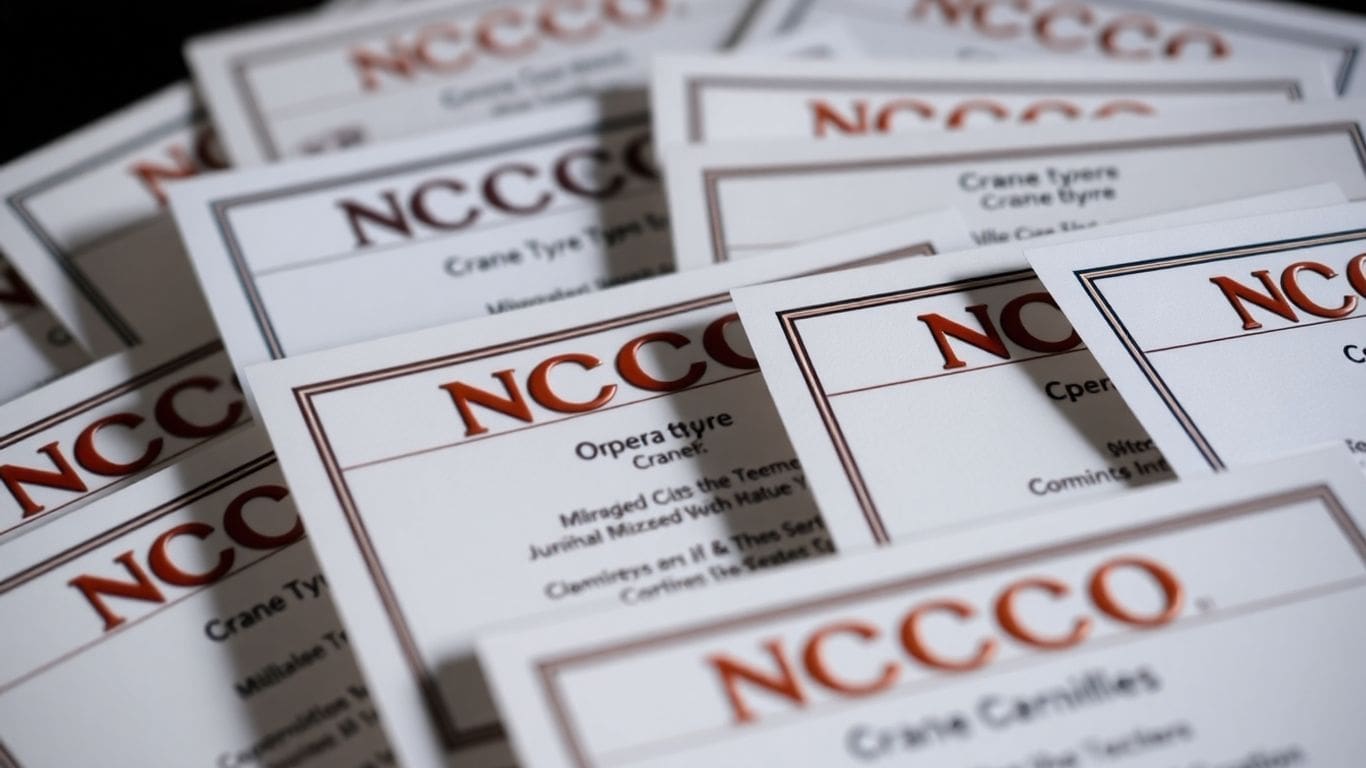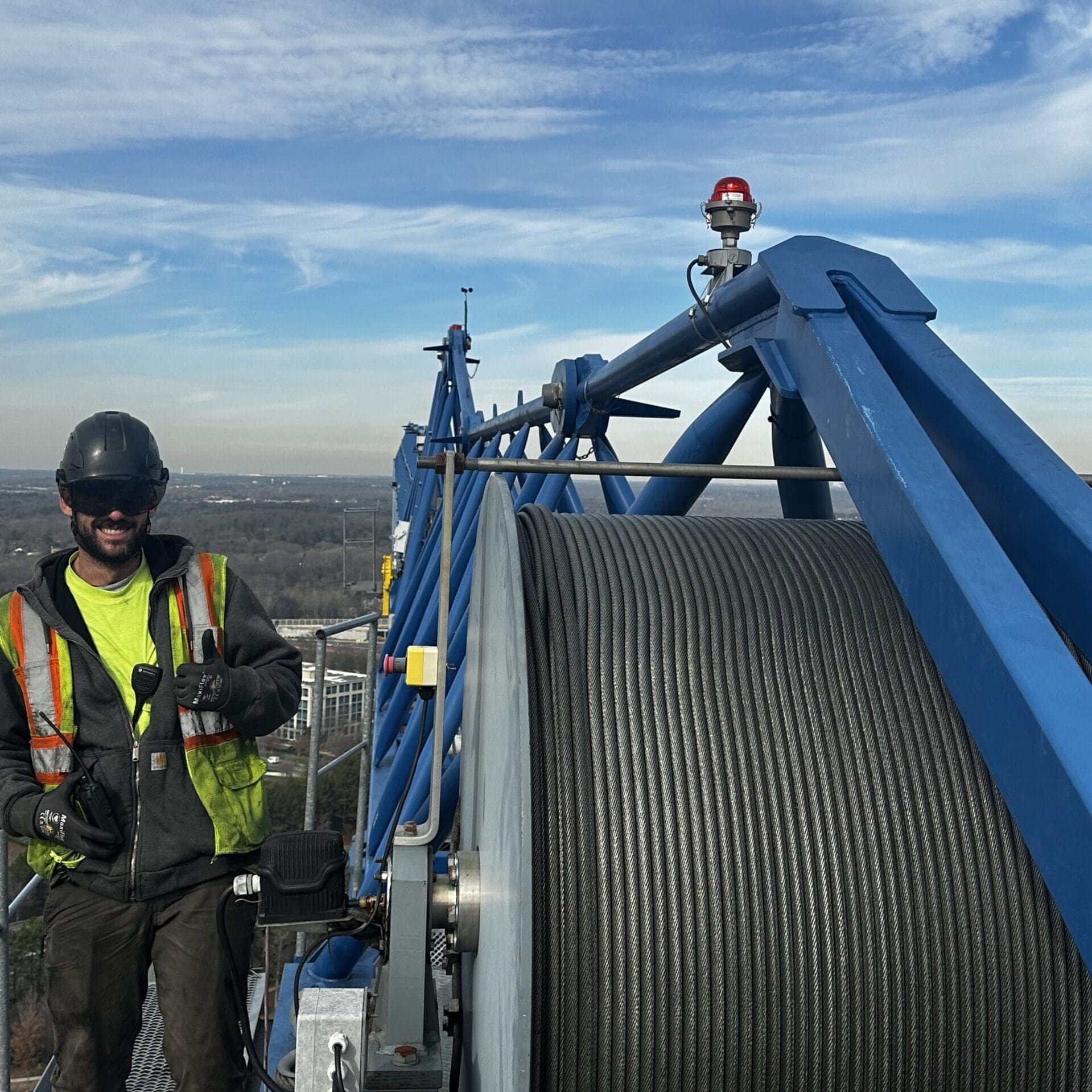Thinking about a career in operating cranes or rigging? The National Commission for the Certification of Crane Operators, or NCCCO, offers credentials that can really make a difference. These certifications show you know your stuff and can work safely. We’re going to look at the different NCCCO Certification Types available and what they mean for your job prospects. It’s not just about getting a piece of paper; it’s about proving your skills and opening doors in the construction world.
Key Takeaways
- NCCCO Certification Types cover a range of crane operations, from mobile and tower to overhead cranes, plus specialized roles like rigging and signalperson.
- Getting certified shows employers you have the necessary skills and prioritize safety, making you a more attractive candidate.
- The certification process involves passing both written and practical exams, requiring dedicated study and hands-on practice.
- Meeting eligibility requirements, including age, education, and physical fitness, is a necessary step before taking the exams.
- Holding NCCCO certifications can lead to better job opportunities, higher pay, and career advancement in the construction industry.
Understanding NCCCO Certification Types
So, you’re looking into NCCCO certifications, huh? That’s a smart move if you’re in or thinking about getting into the construction or lifting industries. Basically, NCCCO stands for the National Commission for the Certification of Crane Operators, and getting certified by them is a big deal. It’s not just some piece of paper; it’s proof that you know your stuff when it comes to operating cranes and related equipment safely and effectively.
What NCCCO Certification Means for Your Career
Getting an NCCCO certification can really change things for your career. Think of it like getting a special badge that tells employers you’re serious about safety and skilled in what you do. It shows you’ve passed some tough tests and know the ins and outs of operating heavy machinery. This can mean better job opportunities, and often, a higher paycheck too. Some studies even suggest certified operators can earn significantly more than those without it. It’s a way to stand out from the crowd and show you’re ready for more responsibility.
The Importance of NCCCO Certification in Construction
In the construction world, safety is everything, right? That’s where NCCCO certification comes in. It’s a standard that helps make sure everyone operating cranes and doing rigging work is properly trained. This isn’t just about following rules; it’s about preventing accidents, which can be really serious on a job site. When you see that NCCCO credential, you know the person holding it has met specific industry standards. This helps build trust and makes job sites safer for everyone involved. It’s a key part of making sure projects run smoothly and without incident.
Why Employers Value NCCCO Certification
Employers really like NCCCO certified folks. Why? Because it means they’re hiring someone who’s been tested and proven to have the necessary skills and knowledge. It takes a lot of the guesswork out of hiring. They know a certified operator understands things like load charts, site safety, and proper hand signals – all vital stuff. Plus, having certified staff helps companies meet safety regulations and avoid potential fines or accidents. It’s a win-win: you get a better job, and they get a reliable, safe worker. It’s a big reason why many companies require CCO certification for their crane and rigging positions.
Core NCCCO Certifications Explained
So, you’re looking into getting certified with NCCCO, huh? That’s a smart move. There are a few main certifications that form the backbone of what NCCCO offers, and they cover some of the most common and critical roles in the industry. Let’s break down these core certifications.
Mobile Crane Operator Certification
This is probably the one most people think of when they hear “crane operator.” Mobile cranes are those that have a power unit and a lifting mechanism mounted on a truck or a crawler. They’re super versatile and show up on all sorts of job sites, from building a new highway to setting up a large event. Getting certified as a Mobile Crane Operator means you’ve proven you know how to handle these machines safely and effectively.
To get this certification, you’ll typically need to pass a written exam that covers things like load charts, crane setup, and safety procedures. Then comes the practical exam, where you’ll actually operate a crane under the watchful eye of an examiner. It’s all about showing you’ve got the skills to do the job right.
Tower Crane Operator Certification
If you’ve ever seen those massive cranes reaching high into the sky on big city construction projects, you’re looking at tower cranes. These are stationary giants, and operating them requires a specific set of skills. The NCCCO Tower Crane Operator certification is for those who want to specialize in these impressive machines.
Operating a tower crane involves a lot of precision, especially when you’re working at great heights. The certification process here is just as rigorous as for mobile cranes, focusing on the unique challenges and safety protocols associated with tower crane operations. It’s a demanding job, but incredibly rewarding if you’re drawn to large-scale construction.
Overhead Crane Operator Certification
Now, let’s talk about cranes you might find indoors, like in factories, warehouses, or manufacturing plants. These are overhead cranes, often controlled from a pendant or a remote. They’re used for lifting and moving heavy materials within a facility. The NCCCO Overhead Crane Operator certification is designed for folks who work with these types of cranes.
This certification focuses on the specific safety rules and operating techniques for overhead cranes. Think about a busy factory floor; safety is absolutely paramount. This certification shows you understand how to navigate those environments and operate the equipment without causing issues. It’s a key credential for many industrial jobs.
These core certifications are the foundation for many careers in lifting operations. They demonstrate a baseline of knowledge and skill that employers look for to ensure safety and efficiency on the job site. Passing both the written and practical exams is a significant achievement and a requirement for crane training in the United States.
Each of these certifications has its own set of requirements and exam content, so it’s worth looking into the specifics for the type of crane you’re interested in operating. Getting certified is a big step toward a safer and more successful career.
Specialized NCCCO Certifications and Endorsements
Beyond the core crane operator certifications, NCCCO offers specialized credentials that can really fine-tune your career path. These are for folks who want to focus on specific areas within the lifting and rigging world. Think of them as adding extra tools to your professional toolbox.
Rigger and Signalperson Certifications
These certifications are all about the folks who aren’t directly operating the crane but are absolutely vital to its safe operation. Riggers are the ones who attach the load to the crane, and signalpersons are the eyes and ears for the operator, guiding them with hand signals or radio communication. Getting certified here shows you know the ins and outs of load handling and communication.
- Rigger Level I: Focuses on basic rigging principles, including selecting rigging gear and performing simple lifts.
- Rigger Level II: Covers more complex rigging operations, including advanced rigging techniques and load stability.
- Signalperson: Demonstrates proficiency in communicating with crane operators using standard hand signals or voice commands.
Crane Inspector Certification
If you have a knack for detail and a strong understanding of safety, becoming a certified crane inspector might be your next step. These professionals are responsible for checking cranes and lifting equipment to make sure they’re in good working order and meet all safety standards. It’s a critical role that helps prevent accidents before they happen. You’ll be looking at everything from the mechanical parts to the electrical systems. This is a great way to move into a safety-focused role and is often a path for experienced operators or mechanics. You can find more information on becoming a certified inspector through NCCCO’s official site.
Lift Director Certification
This certification is for those who plan and oversee complex lifting operations. A Lift Director is essentially the mastermind behind a critical lift, ensuring all the planning, equipment, and personnel are coordinated for maximum safety and efficiency. It requires a deep understanding of load charts, rigging, crane capabilities, and site conditions. It’s a leadership role that demands a lot of responsibility but can be very rewarding.
Being certified as a Lift Director means you’re trusted to manage some of the most challenging lifts in the industry. It’s not just about knowing how to operate equipment; it’s about understanding the entire operation from start to finish and being able to anticipate and mitigate risks. This certification is a testament to your planning abilities and your commitment to safety on the job site.
Navigating the NCCCO Certification Process
So, you’re ready to get that NCCCO certification. That’s awesome! It’s a big step, but totally doable when you break it down. Think of it like planning a trip – you need to know where you’re going, what you need to pack, and how to get there. The NCCCO process is pretty similar.
Meeting Eligibility and Physical Requirements
First things first, you’ve got to meet the basic requirements. This usually means you need to be at least 18 years old and have a decent amount of experience operating the type of equipment you want to be certified on. NCCCO also requires a physical exam to make sure you’re fit for the job. This isn’t just a formality; it’s about making sure you can handle the demands of operating heavy machinery safely. They want to know you can see well, hear well, and don’t have any medical conditions that could put you or others at risk.
- Age: Minimum 18 years old
- Experience: Varies by certification type
- Physical Exam: Must pass a drug and alcohol screening and meet specific health standards
Preparing for Written and Practical Exams
This is where the real work happens, but don’t let it stress you out. The best way to prepare is to get your hands on the official study materials. The NCCCO Candidate Handbook is your best friend here. It lays out exactly what you need to know. For the written exam, which is multiple-choice, focus on understanding crane safety, load charts, and rigging principles. Practice tests are super helpful for getting a feel for the questions. The practical exam is all about showing you can actually operate the equipment safely and correctly. If you can get simulator time or hands-on training, jump on it! It builds that muscle memory and confidence. Remember, mastering load charts is key for both parts of the test. You can find great resources to help you get ready for both the written and practical exams here.
Understanding Exam Content and Format
Let’s talk about what the tests are actually like. The written exam is typically split into two parts: a core exam and a specialty exam for the specific type of crane you’re seeking certification for. The core exam covers general knowledge, while the specialty exam gets into the nitty-gritty of that particular crane. You’ll have a set amount of time for each, so managing your time during the test is important. The practical exam is hands-on, where you’ll demonstrate specific skills. It’s designed to see how you handle real-world scenarios.
The goal of these exams is to confirm you have the knowledge and skills to operate equipment safely. It’s not about tricking you; it’s about verifying your competence.
Here’s a general idea of the exam structure:
| Exam Portion | Number of Questions | Time Allotted |
|---|---|---|
| Core Exam | Around 90 | 90 minutes |
| Specialty Exam | Around 26 | 60 minutes |
Keep in mind these numbers can vary slightly, so always check the official NCCCO guidelines for the most up-to-date information. Getting certified is a solid way to boost your career, and understanding this process is the first step.
Advancing Your Career with NCCCO Certification
So, you’ve gone through the hoops and earned your NCCCO certification. That’s awesome! But here’s the thing: that certificate isn’t just a piece of paper; it’s like a key that can open a lot more doors than you might think. Think of it as the first step on a longer path, not the finish line.
Expanding Your Skillset with Additional Certifications
Once you’ve got your core certification, don’t stop there. The world of crane operation and rigging is pretty big, and there are other certifications that can make you even more valuable. For example, if you’re certified as a mobile crane operator, you might consider getting certified for overhead cranes too. This opens up opportunities in factories and warehouses, which are different environments than a typical construction site.
- Tower Crane Operator: Essential for high-rise construction in urban areas.
- Overhead Crane Operator: Great for industrial settings and manufacturing plants.
- Rigger and Signalperson: These certifications show you understand the safety side of moving loads, which employers really like.
- Crane Inspector: This can lead you into roles focused on safety and maintenance management.
Getting these extra credentials shows you’re serious about your profession and willing to learn more. It can make you stand out when jobs are scarce.
Pursuing Specialized Roles and Industries
Your NCCCO certification doesn’t tie you down to just one type of job. You can use it as a springboard to work in all sorts of different places. Think about:
- Heavy Construction: Building bridges, skyscrapers, and major infrastructure projects.
- Ports and Shipping: Handling massive containers and equipment.
- Oil and Gas: Working in demanding and often remote locations.
- Wind Energy: Erecting turbines, which requires specific skills and precision.
- Industrial Maintenance: Keeping large factories and plants running smoothly.
Each of these areas might offer different challenges, better pay, and more interesting projects. Specializing means you’re developing skills that not everyone has, making you a more sought-after professional.
The Long-Term Benefits of Staying Certified
Keeping your certification up-to-date is super important. Rules and best practices change, and you don’t want to get caught out. Staying current means:
- Staying Compliant: You meet all the legal and industry requirements.
- Maintaining Employability: Employers look for current certifications.
- Continuous Learning: You’re always picking up new knowledge.
Regularly renewing your card, maybe taking a refresher course now and then, and keeping up with industry news are small steps that pay off big time. It keeps you safe, motivated, and most importantly, ready for whatever the job throws at you.
Ultimately, your NCCCO certification is a foundation. By building on it with more training and seeking out specialized roles, you’re setting yourself up for a long and successful career in the field. It’s all about continuous growth and showing that you’re committed to being the best in the business.
Wrapping Things Up
So, there you have it! Getting your NCCCO certification is a really solid move if you’re looking to build a career in crane operation or rigging. It’s not just about passing a test; it’s about showing you know your stuff and can do the job safely. Whether you’re aiming for a specific type of crane or want to keep your options open with multiple certifications, the NCCCO has a path for you. It might seem like a lot to take in, but with the right preparation and training, you’ll be well on your way to a safer, more rewarding career. Good luck out there!
Frequently Asked Questions
What does NCCCO certification actually mean?
NCCCO certification is like a special badge that shows you know how to safely operate cranes and other heavy equipment. It means you’ve learned the right skills and followed the rules to do your job well. Companies trust certified workers because they know they’re skilled and safe.
Why is NCCCO certification so important in construction?
In construction, safety is super important. NCCCO certification proves that you understand safety rules and know how to use equipment without causing accidents. This helps keep everyone on the job site safe and makes projects run smoother. Employers really want people with this certification.
What are the main types of NCCCO certifications?
There are several main types. You can get certified as a Mobile Crane Operator, Tower Crane Operator, or Overhead Crane Operator. There are also certifications for Riggers, Signalpersons, Crane Inspectors, and Lift Directors, which are important for different jobs related to lifting and moving heavy things.
How do I get NCCCO certified?
To get certified, you usually need to be at least 18, have a high school diploma, and pass a physical exam. Then, you’ll take a written test and a practical test where you actually operate the equipment. You have to pass both to earn your certification.
What happens after I get my NCCCO certification?
Getting certified is a great start! You can use it to get better jobs and earn more money. You can also get more certifications to work with different types of cranes or in special areas like ports or wind energy. It’s a stepping stone to growing your career.
How do I keep my NCCCO certification up to date?
Certifications usually need to be renewed. This means keeping up with new safety rules, maybe taking extra training, and staying current with industry news. Regularly renewing your card and continuing to learn helps you stay safe, motivated, and certified.
